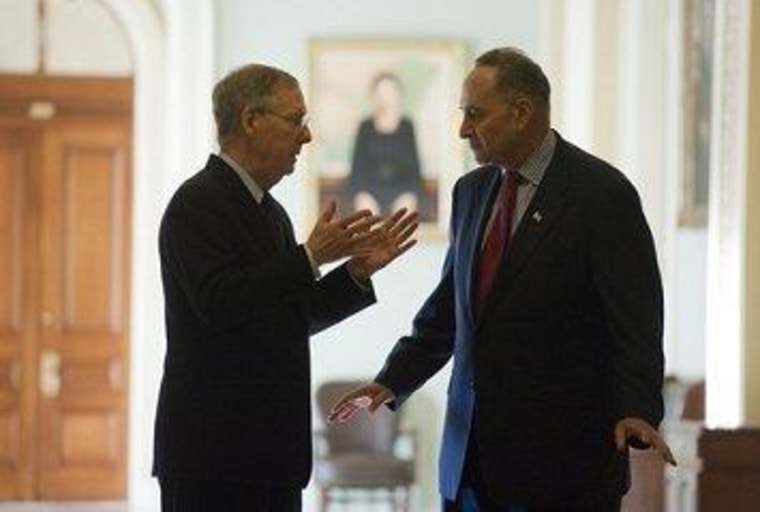In mid-September, the non-partisan Congressional Research Service published a detailed report, documenting the fact that reducing taxes on the wealthy does not, in fact, generate economic growth. Instead, the CRS found, the trickle-down model appears to be "associated with the increasing concentration of income at the top."
The report was no small development. After all, as David Leonhardt noted when it was published, the CRS analysis undermines a "defining economic policy" of modern Republican thought. Indeed, the entire Romney/Ryan economic plan is predicated on the assumption that supply-side theory works, and here was the CRS saying it doesn't.
As of today, the CRS report is no more.
The Congressional Research Service has withdrawn an economic report that found no correlation between top tax rates and economic growth after Senate Republicans -- including the Senate Republican leader, Mitch McConnell -- raised a litany of concerns with the paper's findings and wording.The decision, made in late September against the advice of the agency's economic team leadership, drew almost no notice at the time.
Sen. Chuck Schumer (D-N.Y.), who has referenced the CRS report, told the Times, "This has hues of a banana republic. They didn't like a report, and instead of rebutting it, they had them take it down."
This is more important than may even be apparent at first blush.
For those unfamiliar with the Congressional Research Service, this is effectively Congress' own think tank. It's non-partisan, and it's generally counted on to provide lawmakers with the most reliable and accurate information available.
Critical to the work CRS researchers and scholars do is the understanding that their scholarship is free of partisan influence -- they provide accurate reports and leave it to policymakers to act as they see fit.
But in this case, the CRS presented Republicans with inconvenient truths. A spokesperson for Mitch McConnell said the officials at the research service "decided, on their own, to pull the study pending further review." While that may be true, the question then becomes how much pressure the CRS officials were under to make this decision "on their own."
And what is it that Republicans didn't like about the CRS analysis? McConnell aides offered a series of complaints, including the report's use of the phrase "Bush tax cuts."
Apparently, in Republicans' minds, to say "Bush tax cuts" is to use an inappropriate "tone."
But putting all of that aside, we simply cannot have a functioning federal system in which neutral, independent offices are ignored, pressured, and/or censored when Republicans don't like what they have to say. We've now seen this recently with the Bureau of Labor Statistics and Congressional Budget Office, and democratic norms dictate that GOP officials cut this out.
Really, just stop it. If objective truths bother you, don't blame the messenger, blame your bogus assumptions.
For what it's worth, the CRS pulled the report from its website, but Senate Democrats have liberated it, republishing the analysis on their own site.
